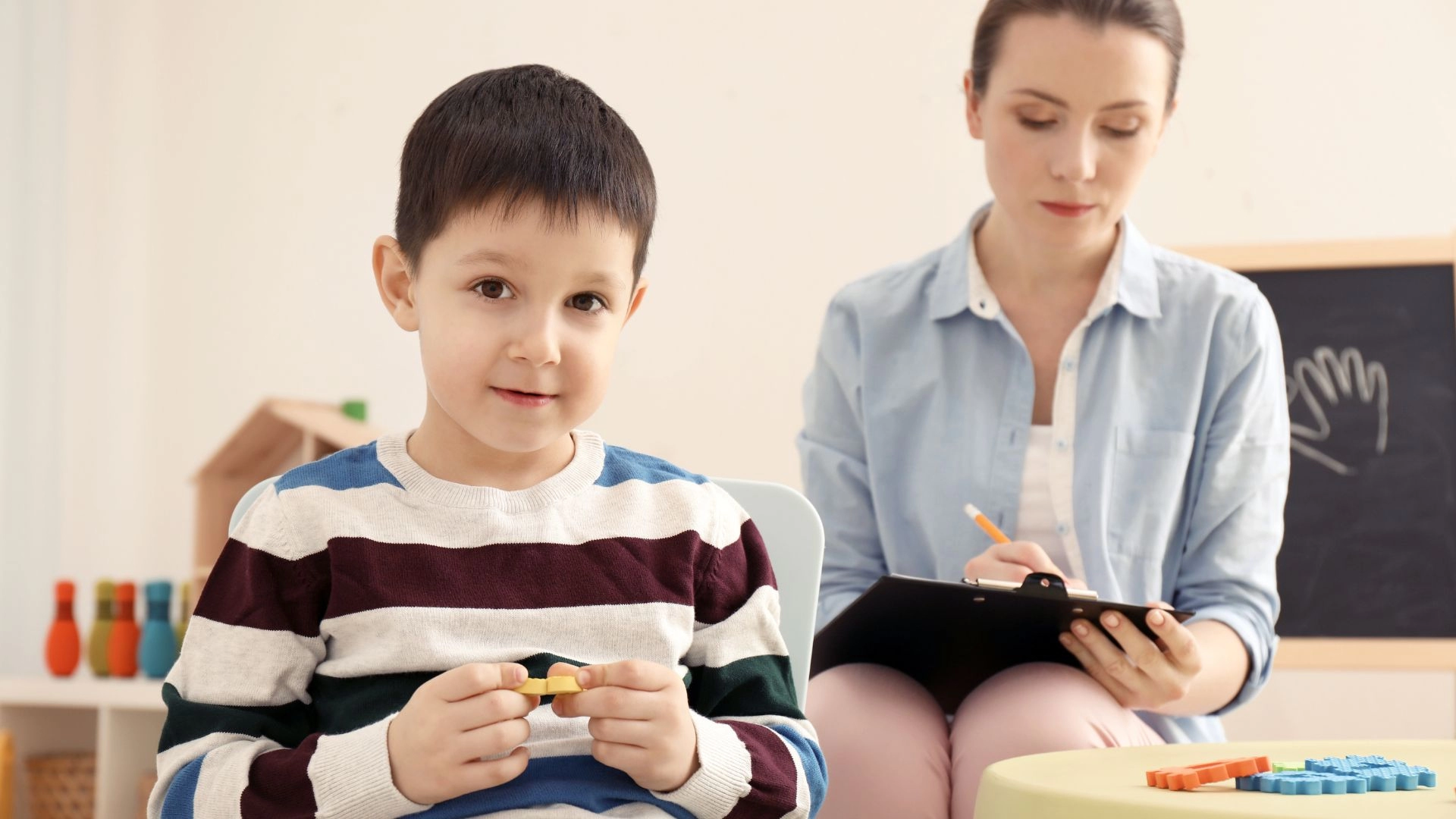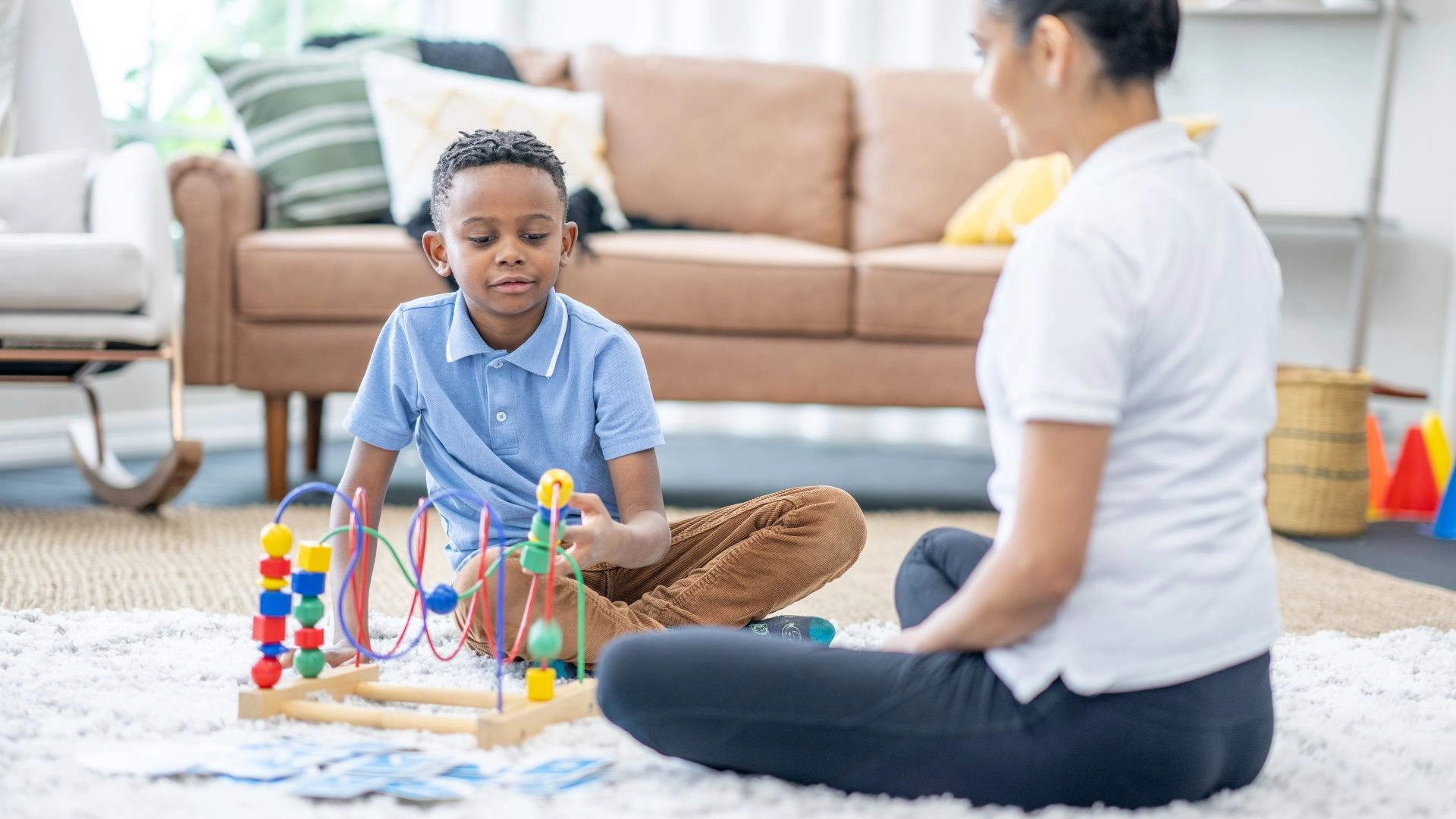At our Child Counselling Therapy center in Oakville, we’re committed to helping children struggling with eating disorders find hope and healing. We recognize how challenging these issues can be, and we provide a safe, supportive space for kids to explore their feelings. Our tailored approach includes various therapeutic techniques, like cognitive-behavioral therapy, to foster healthier relationships with food and body image. By also involving families, we strengthen communication and understanding. Together, we empower children to build resilience and self-acceptance. If you’re curious about how we can support your child further, there’s so much more to discover.

About Child Counselling Therapy
Child counselling therapy offers a compassionate space where we can help children navigate their emotions and challenges, fostering resilience and understanding in their journey towards healing. In our practice, we recognize that every child’s experience is unique, and we tailor our child therapy approaches to meet their specific needs.
Through pediatric counseling, we provide emotional support for children, helping them develop coping strategies and improve their self-esteem. We focus on creating a safe, trusting environment where children feel comfortable expressing themselves. In addressing issues such as anxiety, depression, and behavioral concerns, we empower children to articulate their feelings and experiences.
For those struggling with more complex issues like eating disorders, our child counseling includes specialized eating disorder treatment. We work collaboratively with families to guarantee a holistic approach that promotes healthy relationships with food and body image. By involving parents in the process, we strengthen the support system around the child, which is essential for effective healing.
Ultimately, our goal is to guide children towards a brighter future, equipping them with the tools they need to face life’s challenges with confidence and resilience. Together, we can help foster positive growth and emotional well-being.
Exploring Eating Disorders in Children
Addressing the emotional challenges children face often leads us to explore the serious issue of eating disorders, which can greatly impact their physical and mental health. As we navigate this sensitive topic, we recognize that many children struggle with their body image and may turn to emotional eating as a coping mechanism. These behaviors can develop into more serious eating disorders, affecting their overall well-being.
In our practice, we see how societal pressures, peer influences, and even family dynamics can contribute to these struggles. It’s vital for us to create a safe space where children feel understood and supported. Through child counseling therapy, we can help them express their feelings and develop healthier relationships with food and their bodies.
Therapy for kids focuses on identifying the root causes of these issues and promoting self-acceptance. We aim to equip children with the tools they need to combat negative thoughts and behaviors associated with eating disorders. By fostering open conversations, we empower them to embrace their individuality, ultimately guiding them toward a path of healing and resilience. Together, we can break the cycle of eating disorders and nurture a healthier self-image.

How Child Therapists Support Eating Disorder Treatment
Therapists play an essential role in supporting children through eating disorder treatment by creating a compassionate environment where they can openly explore their feelings and experiences. In our practice, we utilize child counseling therapy techniques tailored to each child’s unique needs, fostering a safe space for self-expression.
Through eating disorder therapy, we focus on understanding the underlying issues that contribute to unhealthy eating behaviors. We often employ cognitive-behavioral therapy, which helps children identify and challenge negative thoughts related to body image and food. This approach empowers them to develop healthier coping mechanisms and promotes the emotional well-being of children.
Moreover, our team collaborates closely with families to guarantee a holistic approach to treatment. We provide guidance and support to parents, helping them understand their child’s struggles and encouraging positive reinforcement at home. By connecting children with appropriate child mental health services, we enhance their support system during recovery.
Ultimately, our goal is to nurture resilience and self-acceptance in children, helping them regain control over their relationship with food and their bodies. Together, we can pave the way for a healthier future, free from the constraints of eating disorders.
Family Counseling for Children Struggling with Eating Disorders
Recognizing that family dynamics play a significant role in a child’s recovery, we emphasize the importance of family counseling for those struggling with eating disorders. It’s vital to understand that eating disorders don’t just affect the child; they impact the entire family. Through family counseling for children, we can help create a supportive environment that fosters healing.
In our child therapy programs, we incorporate parent-child therapy to strengthen communication and understanding within the family. This approach allows us to address underlying issues that may contribute to the eating disorder, including childhood trauma. By involving family members, we can help everyone learn effective coping strategies and improve emotional connections.
As we work together, we’ll focus on fostering positive relationships that are essential for eating disorder recovery. Family counseling provides a safe space where everyone can express their feelings and concerns, helping to create a united front in the child’s healing journey. Together, we can build the necessary support systems for recovery, ensuring that the child feels loved and understood as they navigate this challenging time.
Using Cognitive Behavioral Therapy (CBT) for Child Eating Disorders
Cognitive Behavioral Therapy (CBT) has proven to be an effective approach for helping children overcome eating disorders by addressing the thoughts and behaviors that contribute to unhealthy eating patterns. Through CBT, we can empower our children to identify negative thoughts about food and body image, replacing them with healthier perspectives. This process is essential in promoting child mental wellness.
As we engage in child counseling therapy, we observe how CBT helps children develop coping strategies that facilitate healthier eating habits. We create a safe space where they can express their feelings, learn about eating disorder awareness, and understand the impact of their thoughts on their behaviors. It’s about nurturing a positive self-image and resilience.
Moreover, incorporating recovery support groups into the therapy can greatly enhance the healing journey. These groups allow children to connect with peers facing similar challenges, fostering a sense of community and understanding. Together, we can help our children navigate their recovery, ensuring they feel supported every step of the way. By utilizing CBT, we’re not just addressing the symptoms of eating disorders; we’re paving the way for a healthier mindset and brighter future.
Utilizing Play Therapy to Address Eating Disorders
Play therapy offers a unique and engaging way for children to express their feelings about food and body image, allowing us to gently explore the underlying issues related to their eating disorders. In our sessions, we create a safe space where children can use toys, games, and creative play to communicate emotions they might struggle to articulate verbally.
This approach is particularly effective in child counseling therapy as it encourages emotional healing for children by fostering trust and comfort. Through play, we can observe child behavior disorders, such as anxiety or avoidance around food, in a natural and non-threatening manner.
By utilizing play therapy, we help children confront their feelings about eating in a way that feels manageable. It allows them to process complex emotions and develop healthier coping strategies. As we guide them through this therapeutic process, we empower them to build a more positive relationship with food and their bodies.
Ultimately, our goal is to support their journey toward recovery, helping them regain a sense of control and confidence. Play therapy stands out as an essential tool in therapy for children facing eating disorders, promoting growth and understanding in a compassionate environment.

Art Therapy for Helping Children Express Emotions Around Eating Disorders
Building on the foundation of play therapy, art therapy provides another powerful avenue for children to express their emotions surrounding eating disorders, allowing them to communicate complex feelings in a creative and non-verbal way. Through various child therapy activities, we can facilitate emotional regulation in children, helping them navigate their feelings about food, body image, and self-worth.
In our sessions, we encourage kids to use art as a therapeutic tool, enabling them to create visual representations of their struggles. This process not only fosters self-expression but also helps them articulate emotions that might be hard to verbalize. Art therapy for kids integrates seamlessly with traditional child psychotherapy, offering unique, supportive therapeutic interventions for children.
As they explore colors, shapes, and textures, we see kids begin to process their feelings, reducing anxiety and promoting healing. The artwork often serves as a conversation starter, allowing us to investigate deeper into their experiences and fears. Ultimately, art therapy provides a safe space for children to explore their emotions around eating disorders, paving the way for healthier coping mechanisms and a more positive self-image.
Managing Anxiety and Eating Disorders in Children
Managing anxiety alongside eating disorders in children is imperative, as the interplay between these challenges can greatly impact their emotional well-being and overall recovery journey. When we consider child counseling therapy, it’s essential to address both issues concurrently. Anxiety in children often exacerbates disordered eating behaviors, making it crucial for us to provide thorough support.
As parents and caregivers, we can seek out eating disorder specialists who understand the nuances of child anxiety treatment. These professionals can create tailored strategies that not only focus on the eating disorder but also address the underlying anxiety that may contribute to it. By integrating therapeutic approaches, we can help our children develop healthier coping mechanisms.
We should encourage open conversations about feelings, providing a safe space for our children to express their concerns. Mindfulness practices and relaxation techniques can also be beneficial in managing anxiety. Ultimately, our goal is to foster resilience and emotional strength, empowering our children to navigate their recovery journey with confidence. Together, we can guarantee that they receive the holistic care they need to overcome both anxiety and eating disorders, paving the way for a brighter future.
School Counseling Resources for Children with Eating Disorders
Recognizing the importance of addressing both anxiety and eating disorders, we can explore valuable school counseling resources that support children in their recovery journey. School counselors play an essential role in identifying early signs of eating disorder diagnoses, providing a safe space for students to express their feelings and concerns.
Through child counseling therapy, counselors can employ various child therapy techniques tailored to each child’s unique needs. Techniques such as cognitive-behavioral therapy help children understand their thoughts and feelings around food, while mindfulness practices can reduce anxiety related to eating.
Additionally, school counseling programs often include workshops and support groups that foster a sense of community among students facing similar challenges. These resources empower children to develop coping strategies and enhance their mental health in a supportive environment.
We know that collaborating with teachers and parents can further strengthen these efforts, ensuring that children receive consistent support both at school and home. By leveraging school counseling resources, we can help children navigate their path to recovery, promoting healthier relationships with food and fostering resilience against anxiety.
Parenting Guidance for Supporting Children with Eating Disorders
Steering through the complexities of eating disorders can be challenging for both children and parents, but with the right guidance, we can create a supportive environment that fosters healing and understanding. It’s essential for us to engage in open conversations about feelings, food, and body image, ensuring our children feel safe expressing themselves.
To provide effective parenting support, we should consider utilizing child counseling services that specialize in eating disorders. These services can offer tailored strategies for managing our child’s anxiety, which often accompanies these conditions. Therapy for kids with anxiety can help them develop coping mechanisms and improve their emotional resilience.
Moreover, we can explore child behavior modification techniques that encourage healthier eating habits without creating additional stress. Psychological therapy for children can also equip us with tools to facilitate positive changes at home, creating a nurturing atmosphere.
Let’s remember that our approach matters greatly. By showing compassion and understanding, we can help our children navigate their challenges while reinforcing their self-worth. Together, we can support their journey toward recovery and well-being, ensuring they feel loved and accepted every step of the way.
Group Therapy Options for Kids Coping with Eating Disorders
Group therapy can be a valuable resource for kids grappling with eating disorders, offering them a safe space to connect with peers who truly understand their struggles. In these group settings, children learn that they’re not alone in their experiences, which can be incredibly comforting. We’ve seen how group therapy for kids fosters a sense of belonging and support, allowing them to share their feelings and challenges openly.
Through child counseling therapy in groups, participants engage in discussions about eating disorder education, gaining insights into their condition and learning healthier coping strategies. This collaborative approach not only helps in addressing eating disorders but also assists in managing therapy for childhood anxiety that often accompanies these issues.
Child and adolescent counseling in a group setting encourages kids to express themselves and supports them in developing stronger communication skills. By hearing others’ stories, they gain perspective and learn that recovery is possible. Overall, group therapy options for kids coping with eating disorders are not just about healing; they’re about building a community where young individuals can grow, share, and find hope together.
Trauma-Informed Approaches to Therapy for Children with Eating Disorders
When it comes to therapy for children with eating disorders, adopting a trauma-informed approach is essential, as it acknowledges the deep connections between past experiences and current struggles with food and body image. We recognize that many children facing these challenges have endured trauma that impacts their emotional development. By integrating trauma-informed therapy into child counseling therapy, we create a safe and supportive environment for healing.
Child therapists trained in trauma-informed approaches recognize that addressing these underlying issues is just as important as focusing on eating behaviors. They work closely with families to foster trust and build rapport, ensuring that children feel heard and understood. This collaborative process not only empowers the child but also helps us uncover the root causes of their struggles.
Moreover, trauma-informed therapy is especially beneficial for therapy for special needs children, as it accommodates their unique experiences and emotional responses. By prioritizing safety and connection, we can help these children navigate their feelings and develop healthier relationships with food and their bodies. Together, we can support their journey toward healing and resilience.
Adolescent Counseling Strategies for Eating Disorders
Supporting adolescents with eating disorders requires tailored counseling strategies that address their unique developmental needs and emotional challenges. In our practice, we recognize that this age group often grapples with issues like body dysmorphia and fluctuating self-esteem. A mental health professional can play an essential role in guiding them through these turbulent times.
In adolescent therapy, we focus on fostering open communication, allowing teens to express their feelings about their eating habits without fear of judgment. We emphasize building a supportive therapeutic alliance, which can help them feel safe and understood. Techniques like cognitive-behavioral therapy (CBT) are particularly effective, as they help adolescents recognize and challenge negative thought patterns related to their body image.
Moreover, involving family members in child counseling therapy can be beneficial. This approach helps create a supportive home environment, encouraging healthier eating habits and emotional well-being. By addressing both psychological and social factors, we can empower adolescents to develop a more positive relationship with food and their bodies. Ultimately, our goal is to guide them toward recovery with compassion and understanding, ensuring they feel valued and heard throughout the process.
Long-Term Approaches to Managing Eating Disorders in Children
Building on our understanding of adolescent counseling strategies, long-term approaches to managing eating disorders in children require an all-encompassing plan that addresses their ongoing psychological, nutritional, and social needs. We need to recognize that these issues often intertwine with child depression therapy and can stem from behavioral disorders in children.
Incorporating child counseling therapy, we can create a supportive environment that fosters open communication. This helps children express their feelings about food and body image without fear of judgment. Nutrition counseling plays a critical role in this process, as it teaches children healthy eating habits and helps them build a positive relationship with food.
Additionally, we can’t overlook the importance of addressing any underlying issues, such as trauma. Therapy for child abuse can be essential in helping a child recover and build resilience. By employing a thorough approach that includes emotional support and practical strategies, we can empower children to manage their eating disorders effectively.
Ultimately, our goal is to create a nurturing framework that promotes healing, growth, and self-acceptance, ensuring that children feel supported throughout their journey to recovery.
Reach Out to Our Child Counselling Therapy Center for Eating Disorder Support in Oakville
If you’re seeking compassionate and professional help for your child’s eating disorder, our Child Counselling Therapy Center in Oakville is here to support you every step of the way. We recognize how challenging this journey can be for both you and your child. Our dedicated team specializes in child counseling therapy, focusing on the unique aspects of child development.
At our Child Counselling Therapy Center in Oakville, we provide specialized therapy for youth struggling with eating disorders, focusing on the root causes of their challenges. Our safe and nurturing environment allows your child to develop healthier coping strategies and build a more positive relationship with food. We also offer family support therapy, ensuring that parents and siblings are involved in the healing process, which enhances understanding and communication within the family.
Together, we can address the complexities of your child’s eating disorder, equipping them with the tools for recovery and resilience. Your child’s well-being is our top priority, and we’re committed to working closely with you to ensure they receive the necessary support. Don’t hesitate to reach out; we’re here to help guide you and your family on this journey toward healing and recovery.

About Town of Oakville
Nestled along the shores of Lake Ontario, Oakville offers a vibrant community where families can thrive and access essential resources for their children’s well-being. We recognize how challenging it can be to navigate issues related to mental health, especially for our little ones. That’s why Oakville provides a variety of services, including child counseling therapy and child psychiatry, tailored to support our families.
In our town, we have dedicated professionals who specialize in therapy for school-aged children, making certain that they receive the help they need in a nurturing environment. Early intervention therapy is a cornerstone of our approach, allowing us to address concerns before they escalate. We believe in fostering child resilience therapy, empowering our children with the tools they need to overcome challenges and build a strong foundation for their future.
As a community, we’re committed to creating a safe and supportive atmosphere for all families. With a range of resources at our fingertips, we can work together to make sure that every child in Oakville has the opportunity to thrive. Let’s continue to support each other and prioritize the mental health of our children.

- Dundas Street (Highway 5)
- Trafalgar Road
- Lakeshore Road
- Speers Road
- Third Line
- Upper Middle Road
- Bronte Road
- Royal Windsor Drive
- Winston Churchill Boulevard
- Ford Drive
- Dorval Drive
- Rebecca Street
- Great Lakes Boulevard
- 16 Mile Drive
- QEW (Queen Elizabeth Way)
- North Service Road
- South Service Road
- Maple Grove Drive
- Burnhamthorpe Road
- Glenashton Drive
- West Oakville
- Falgarwood
- Kerr Village
- Clearview
- West Oak Trails
- Bronte
- Palermo
- Ennisclare Park
- Glen Abbey
- Uptown Core
- Oakville East L6K
- Oakville South L6L
- Oakville North L6H
- Oakville West L6M
- Oakville Northeast L6J
Frequently Asked Questions
What Are the Signs of an Eating Disorder in Children?
When we think about the signs of an eating disorder in children, we should look for changes in eating habits, excessive focus on weight or body image, and withdrawal from social activities. We might notice mood swings, irritability, or a decline in academic performance. It’s important we pay attention to these signs, as early intervention can make a significant difference in their well-being. Supporting them with understanding and compassion is key.
How Can I Find a Qualified Child Therapist in Oakville?
Finding a qualified child therapist can feel overwhelming, but we’re here to help. We can start by asking our pediatrician for recommendations or searching online directories for licensed professionals in our area. Reading reviews and checking credentials is essential, too. It’s important to find someone who specializes in children’s mental health and makes our child feel comfortable. Trusting our instincts about a therapist’s approach can make a big difference in our child’s healing journey.
Is Child Counseling Therapy Covered by Insurance?
When it comes to child counseling therapy, it’s understandable to wonder about insurance coverage. Many insurance plans do offer some level of coverage for mental health services, but it varies widely. We should check our specific policy details or contact our insurance provider to clarify what’s included. It’s important to know that investing in our child’s mental health can be invaluable, regardless of how the costs are managed. We’re not alone in this journey.
What Age Should I Start Counseling for My Child’s Eating Issues?
When it comes to counseling for our child’s eating issues, it is crucial to trust our instincts. We should consider starting as soon as we notice signs of distress or unhealthy eating patterns, regardless of age. Early intervention can make a significant difference in their emotional and physical wellbeing. Let’s keep communication open and supportive, ensuring our child feels safe expressing their feelings, so they can thrive in a healthier environment.
Are There Specific Dietary Recommendations During Therapy?
When it comes to dietary recommendations during therapy, we believe it’s crucial to focus on balanced nutrition and mindful eating rather than strict diets. We can work alongside a registered dietitian to create a personalized plan that meets our child’s needs, promoting healthy habits without adding pressure. It’s important to foster a positive relationship with food, encouraging variety and enjoyment in meals, while also being gentle and supportive throughout the process.
